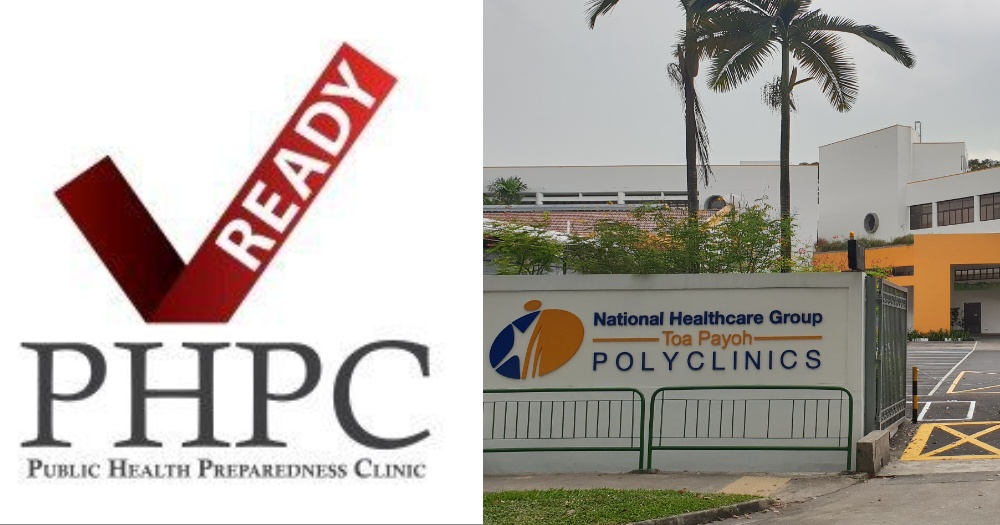From Feb. 18 onwards, patients diagnosed with respiratory symptoms will benefit from subsidised fees at designated general practitioner (GP) clinics and polyclinics.
This was announced by Minister for Health Gan Kim Yong on Friday (Feb. 14).
Singapore citizens and permanent residents will pay a flat subsidised rate of S$10, while members of the Pioneer Generation and Merdeka Generation will pay S$5.
Healthcare professionals have also been advised to provide medical certificates of five days for patients with respiratory symptoms, in an attempt to contain the spread of the novel coronavirus (Covid-19).
Designated PHPC clinics
Patients will benefit from these new schemes at 900 specially-designated GP clinics.
They will be given Public Health Preparedness Clinics (PHPCs) status, in an attempt to better detect and manage Covid-19 infections, according to the Ministry of Health (MOH) in a press conference on Feb. 14.
PHPCs are guided on the appropriate care protocols according to the assessed risk and diagnosis of each patient, and will be supplied with the necessary Personal Protection Equipment (PPE) to carry out their role.
Many local confirmed patients continued to be in the public when they were ill
According to MOH, many local confirmed cases had continued to circulate in the community or gone to work when they were already ill.
Based on the Covid-19 cases in Singapore so far, the National Centre for Infectious Diseases (NCID) also observed that significant number of patients have mild symptoms in the initial phase of infection.
These symptoms are similar to the influenza, and involve mild flu-like symptoms such as fever and cough, although Gan also said that "it is a fact that most patients with respiratory symptoms are not infected with Covid-19".
As a result, MOH is progressively reactivating PHPCs, in order to reduce the risk of community transmission, starting from Feb. 18.
Previously activated for haze and H1N1
The activations of PHPCs is not new, said Gan, as he explained that they were previously activated to deal with the haze and the H1N1 influenza pandemic.
To deal with the H1N1 outbreak in 2009, MOH formed Pandemic Preparedness Clinics (PPCs) to allow polyclinics and participating primary care clinics to provide outpatient care.
Severe cases will then be referred to hospitals for further treatment.
In September 2015, MOH started the Haze Subsidy Scheme, due to the worsening haze situation in Singapore at the time.
The Haze Subsidy Scheme provided Singaporeans with affordable treatment for haze-related conditions, such as allergic rhinitis, asthma, bronchitis and conjunctivitis.
Under this scheme, Pioneers pay a maximum of S$5, while other eligible Singaporeans pay a maximum of S$10.
"These PHPCs provide subsidised treatment, investigations and medications during outbreaks, and play an important role during public health outbreaks," said MOH.
These PHPCs will provide special subsidies for Singapore citizens and permanent residents, with an additional reduced rate for Pioneer Generation and Merdeka Generation members.
Five days MC recommended for patients with respiratory symptoms
In addition, healthcare professionals have also been advised to provide medical certificates of five days for their patients with respiratory symptoms.
Patients will be referred for further medical assessment and tests if they do not recover within five days, according to MOH.
If their symptoms persist or deteriorate, MOH advised patients to return to the same doctor to seek further treatment.
"Patients must recognise the importance of staying at home when unwell. Mixing in large crowds, or continuing to go to work or school when ill, even with mild symptoms, will put others at risk," said MOH.
In their statement, MOH said that more confirmed Covid-19 cases should be expected in the coming days, and that activating the PHPCs is a proactive step to reduce the risk of further community spread of the virus.
Top image from Healthhub and NHGP.
If you like what you read, follow us on Facebook, Instagram, Twitter and Telegram to get the latest updates.
